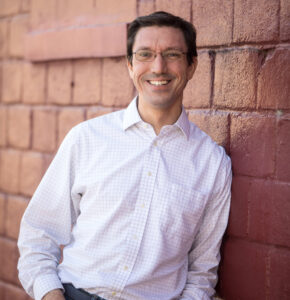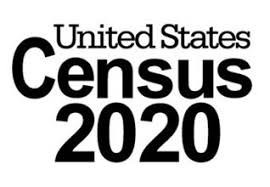by Andrew Szalay, Habitat Executive Director
The following appeared as an editorial column in LNP on February 2, 2020.
The first U.S. census was  completed in 1790, and here we find ourselves — two centuries and three decades later — and it is time for another impactful census.
completed in 1790, and here we find ourselves — two centuries and three decades later — and it is time for another impactful census.
That first census was held a mere 14 years after our Founding Fathers signed the Declaration of Independence. They understood the necessity of explicitly knowing not just the total number of people they were leading, but where these people lived, worked and played.
They set guidelines in the Constitution that the census would be conducted every 10 years, and were forward-thinking enough to know that we Americans would be moving, growing and on the go. They also knew that the government they worked so hard to create would need to be equal parts strong and malleable if it were to last for centuries to come.
On one hand, I find it easy to imagine how Lancaster city looked in 1790 while walking through downtown — brick buildings dominating the landscape, a robust manufacturing industry, and even a gathering place for the exchange of kinship and fresh, local food at the site we know as Central Market.
On the other hand, it would be completely unimaginable to think about our country still basing major funding decisions, which the census helps to guide, on population counts from 1790 — or 1890, or even 1990, for that matter. Not only has our population changed, but our culture, our racial makeup and our individual needs have changed drastically.
Was the need for affordable housing options present in, say, 1990? Of course. But our present-day juxtaposition of the drastic increase in home prices versus the stagnation of individuals’ income leaves us with a much different world — and an increasing need for appropriate funding for social services to be able to fill the gap.
If resources for affordable homes were valuable then, they are even more valuable today as housing costs from 1990 to the present have nearly tripled. And had we, as nonprofits, been seeking greater resources based on individuals’ stories and anecdotes alone, rather than with current census data, our ability to have an impact would be diminished.
One in six Americans now spend more than 50% of their monthly income on housing, according to the Center on Budget and Policy Priorities. We know that millions of people every year forgo their dream of homeownership in order to keep food on the table, to pay down student loans, to wake up each day and pray they don’t have to face the cost of a major medical emergency.
We know there is a shortage of affordable homes in not just our country, but here in our backyard; but we only know this information because we’ve been given the opportunity to study how our population changes and we receive funds to more quickly adjust to the needs of our evolving population.
Some $1.5 trillion in federal money is annually allocated to state and local communities via census data for public infrastructure improvements, health and human service agencies, and community benefit organizations, which fight for everything from the environment to education to affordable housing.
But if you aren’t counted in that census data, not only can we not serve you, we don’t even know you’re out there to be served. It is crucial that you and your neighbors are counted, for your unique voices to be heard. By April 1, every household in the U.S. will receive an invitation to participate in the census. It is essential that you respond.
We at Habitat are so grateful for the opportunity to serve our dynamic, vibrant, ever-evolving community. We encourage you to participate in the 2020 census so our services can continue to reflect this community in which we are so proud to work.
So while our Founding Fathers could not have even begun to understand how the country could look and function in the year 2020, thankfully they had the vision to give us the tools to learn from each other, no matter the century.
At Lancaster Lebanon Habitat for Humanity, we envision a “world where everyone has a decent place to live.” I also believe everyone deserves to have a chance to be heard, to be served, and to be represented. Participating in the census is another key to opening the door for every member of our community to share in that vision.
If you are interested in learning more about the 2020 census, please visit census.gov.

